Looking to buy a “pet” snake? Let us save you some time—don’t. These sensitive animals are exploited by the exotic pet trade, suffer miserably in captivity, and require specialized care that few people are equipped to provide. Keep reading to learn why snakes belong in their natural homes, not in your living room.
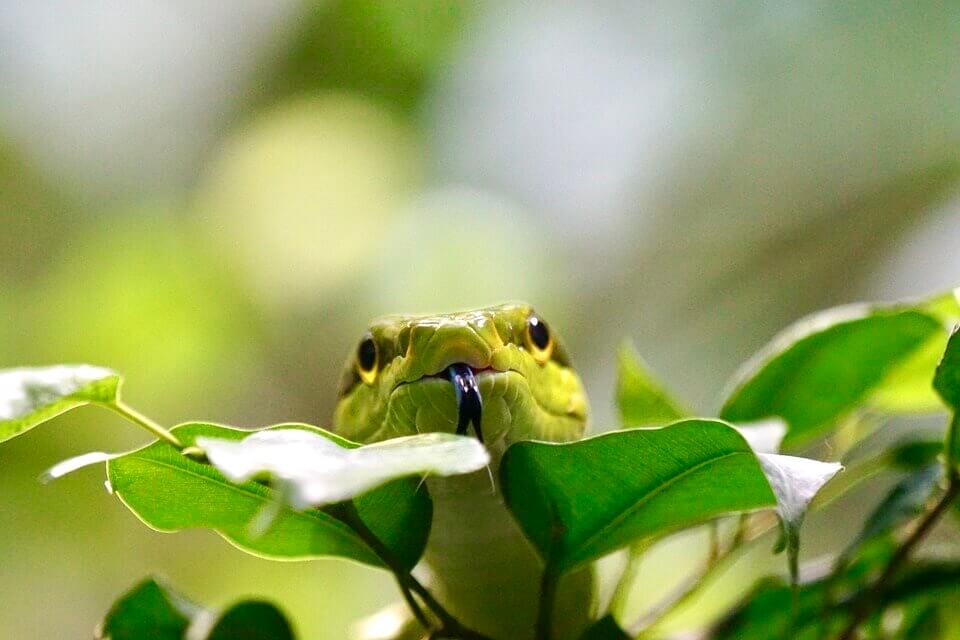
Are Snakes Good ‘Starter Pets’?
No. There’s no such thing as a “starter pet,” because all animals require a lifetime of dedication and care. Snakes and other exotic animals require specialized care, including, at a minimum, spaces large enough to stretch out in, nutritionally balanced and appropriate diets, a consistent feeding schedule, and carefully controlled temperature, light, and humidity levels.
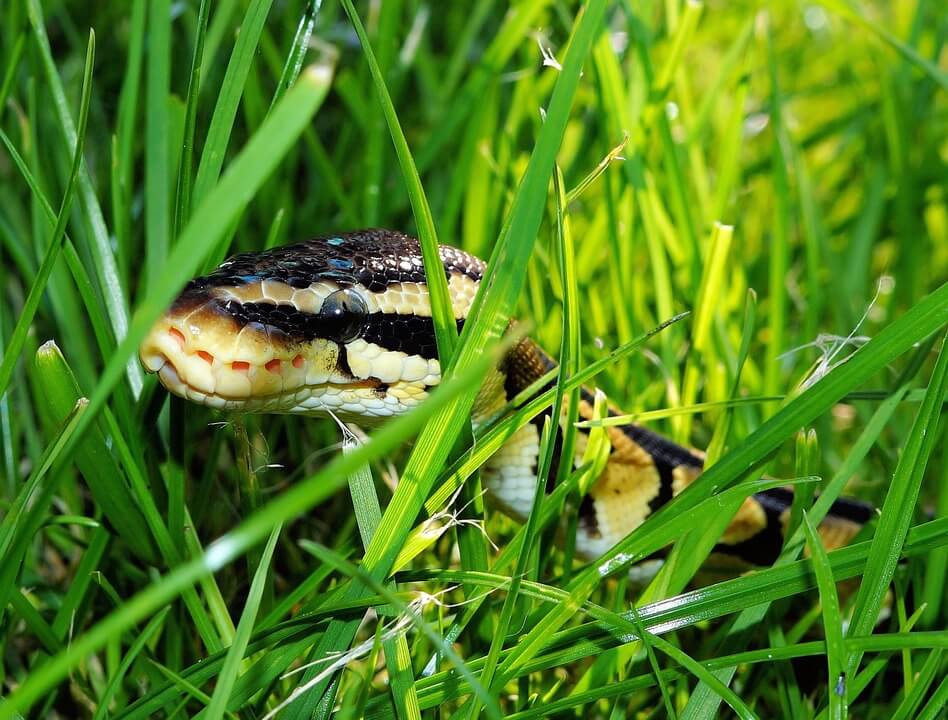
Without these things, snakes will suffer—and may even become sick and die. In one survey, veterinarians estimated that 47% of the exotic “pets” (including snakes) brought to them didn’t have their needs met and 89% of those surveyed said that these animals most often lack a suitable environment.
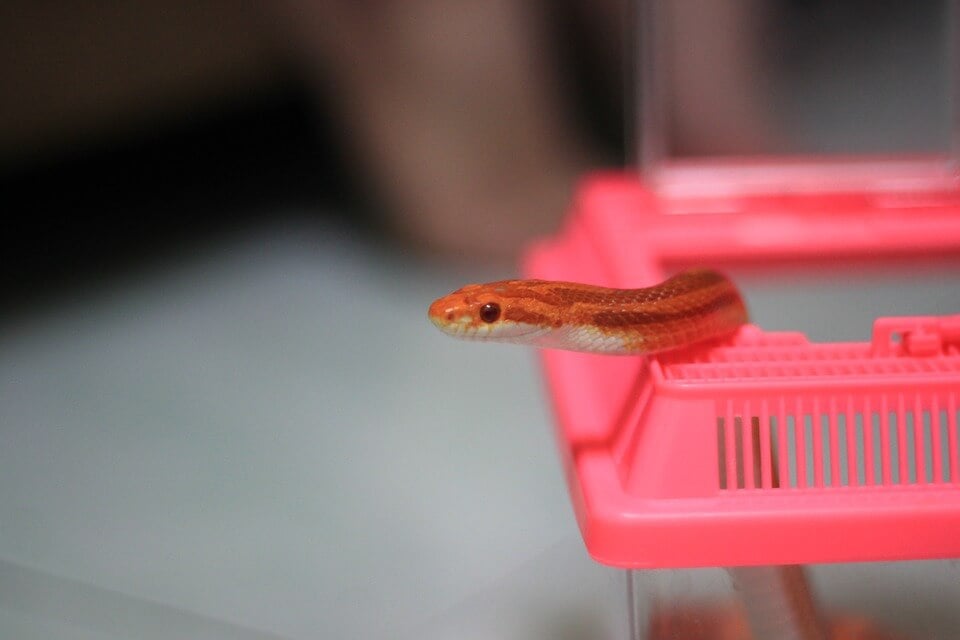
Companies that sell reptile cages and other products, such as Zoo Med, mislead customers into believing that snakes can live in small glass boxes, but that’s a straight-up lie. Reptile experts agree that snakes need at least enough space to stretch out completely. Some pet stores don’t even offer enclosures large enough to allow for this. One peer-reviewed study showed that 90% of “pet” reptiles die within one year—if snakes could really thrive in human homes, they wouldn’t be dying at such alarming rates.
What Is the Best Snake to Have as a ‘Pet’?
None of them. In the cruel exotic pet trade, countless snakes of all kinds die before even making it to pet stores. A PETA investigation into U.S. Global Exotics, which supplied animals to other dealers connected to Petco and PetSmart, revealed that snakes died every day from conditions such as starvation, dehydration, untreated infections, injuries, and illnesses. Workers put hundreds of snakes in a freezer to die slowly and painfully.

Another PETA investigation into Global Captive Breeders, a company that bred and sold reptiles in California, found that workers neglected snakes so severely that they became emaciated and died while trapped inside filthy enclosures. And a PETA eyewitness investigation into a PetSmart supplier, Reptiles by Mack, revealed that workers routinely deprived snakes and other animals of veterinary care, fresh food, and water. One supervisor even admitted that he let sick snakes starve to death instead of putting them out of their misery.
Do ‘Pet’ Snakes Like Humans?
Snakes do form meaningful relationships—just not with humans. Mother snakes are protective of their babies, and in certain species, mothers collaborate with one another to take turns looking after their young. A “pet” snake may become familiar with a human who feeds or handles them, but this relationship is nothing like the bond that might be shared between a human and their cat or dog companion.
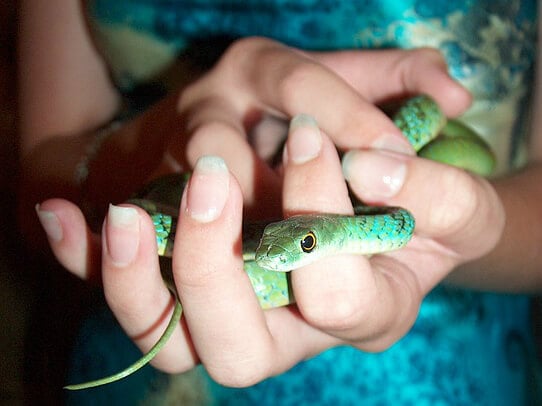 Captive snakes have no choice but to rely on their owners to provide food, water, and everything else that they need, but that doesn’t mean they want to be confined, held, touched, petted, or passed around as if they were toys. Too much physical contact may stress them out—often, the stress will cause snakes to regurgitate their food.
Captive snakes have no choice but to rely on their owners to provide food, water, and everything else that they need, but that doesn’t mean they want to be confined, held, touched, petted, or passed around as if they were toys. Too much physical contact may stress them out—often, the stress will cause snakes to regurgitate their food.
Are ‘Pet’ Snakes Safe?
Holding a snake hostage in your home creates an unsafe environment for everyone. Snakes sold as “pets” may have been taken from their vast natural habitats—where they can climb trees, swim, bask in the sun, and burrow underground—and put into glass prisons that aren’t even long enough for them to stretch out fully. These solitary animals typically only bite or hiss when they’re catching prey or defending themselves, but captive conditions can cause snakes to become agitated and aggressive.
Snakes are natural predators who rely on scent more than on eyesight, so it isn’t unheard of for “pet” snakes to mistake a human’s hand for prey and attack it. Venomous snakes and larger constrictors are illegal in some jurisdictions because they may instinctively kill if they escape from their enclosures. In some cases, constrictors have killed their human caretakers, children, and other animal companions.
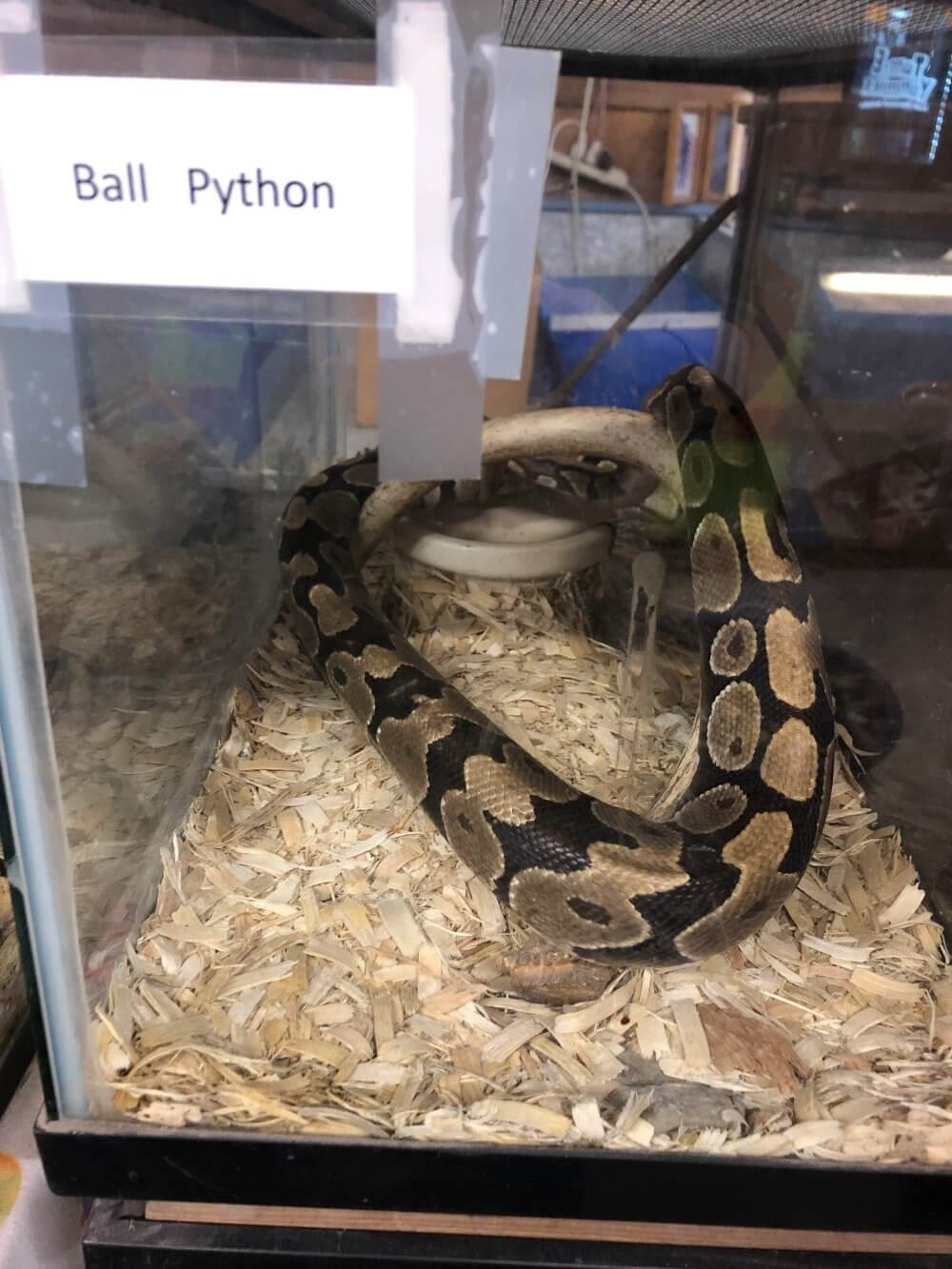
Snakes may also carry potentially deadly bacteria like salmonella, which can be contracted just by handling them—human contact with reptiles and other exotic animals accounts for 74,000 cases of salmonellosis each year.
Handling a snake and confining them to a tank isn’t safe for them, either. They may suffer from infectious stomatitis (mouth rot), internal and external parasites, skin infections, diarrhea, breathing difficulties, inclusion body disease (a fatal viral disease), vomiting, organ swelling, anemia, weight loss, respiratory disease, or septicemia. Being handled by humans may also accidentally injure snakes—and because snakes don’t whine or express pain in other ways that humans easily recognize, their suffering often goes unnoticed.
Never Buy Snakes or Any Other Animals
Snakes don’t want to be kept as “pets.” If you care about them, the best thing that you can do for them is leave them alone and never buy them from pet stores, breeders, or anywhere else—and never support industries that sell animals as “pets.”





